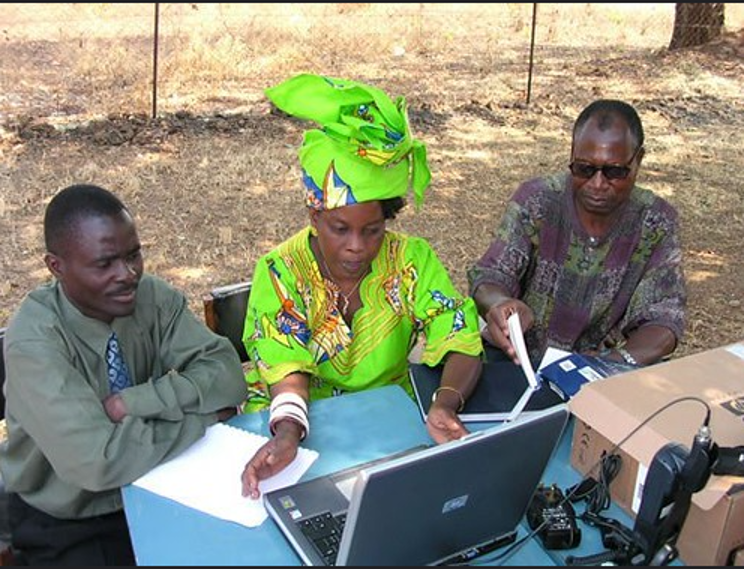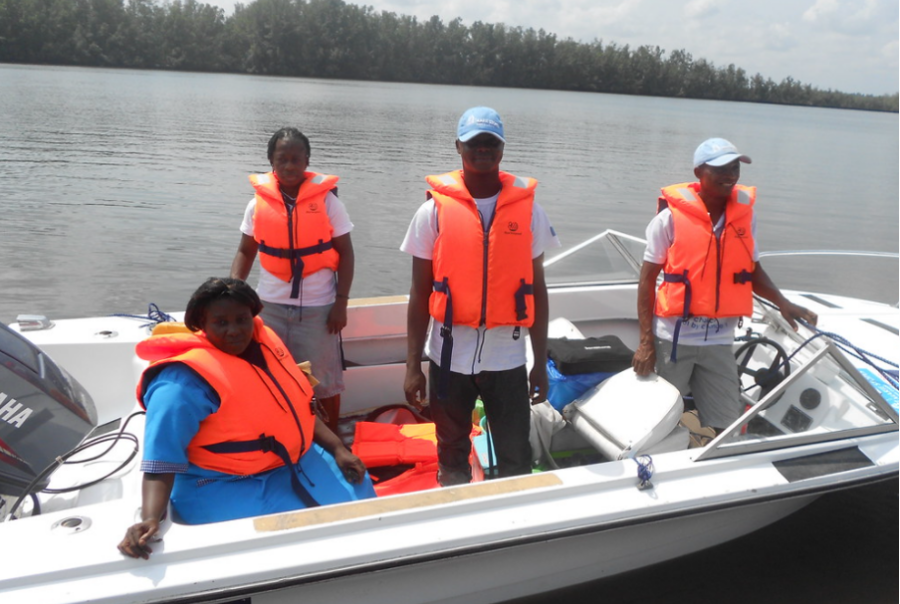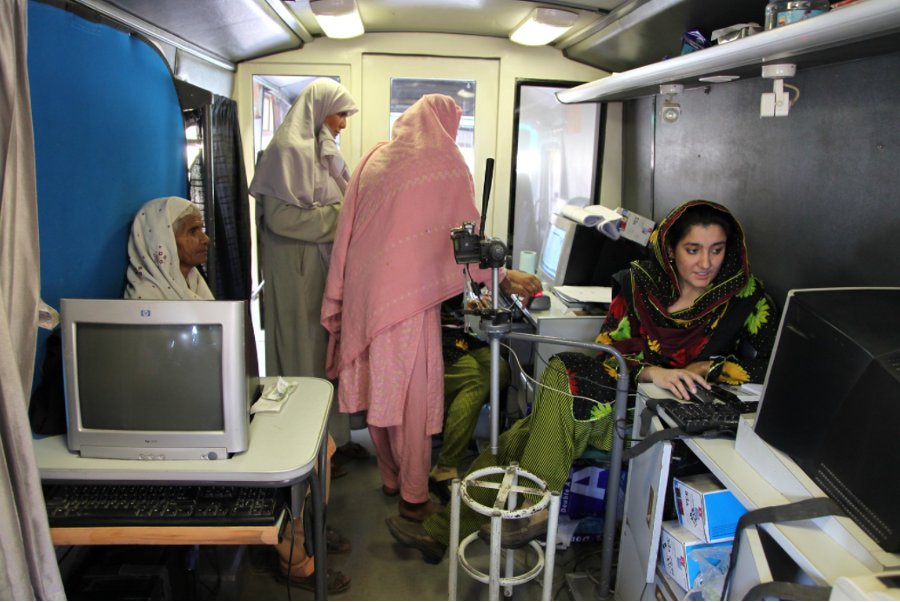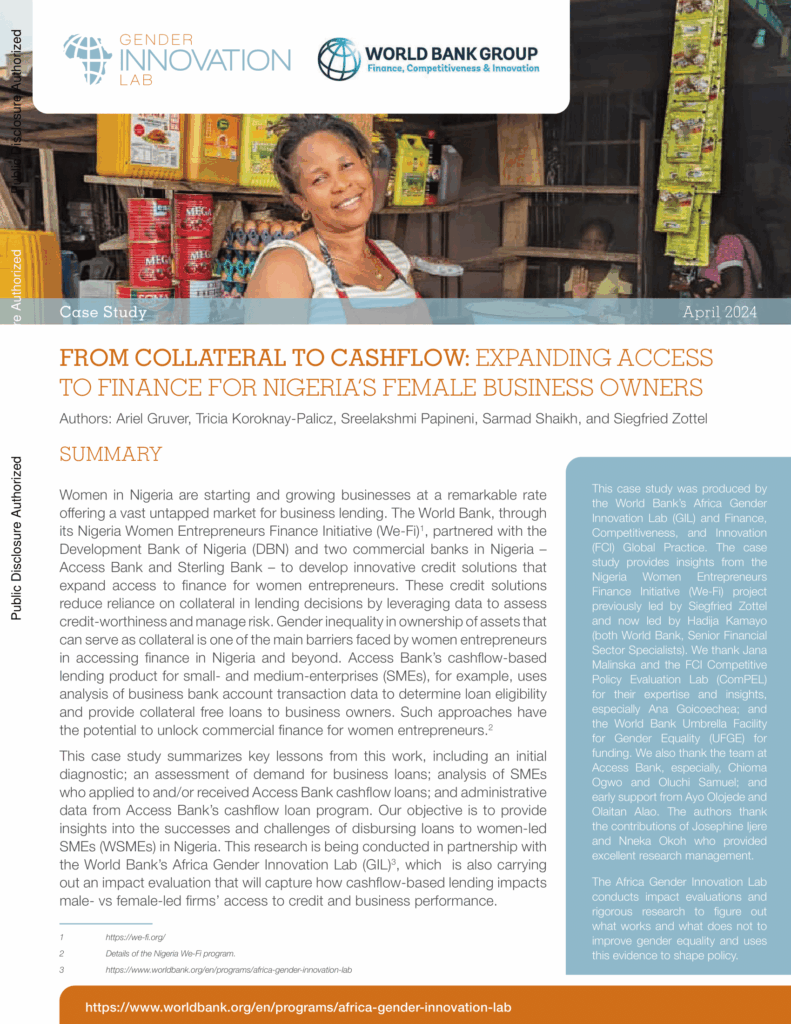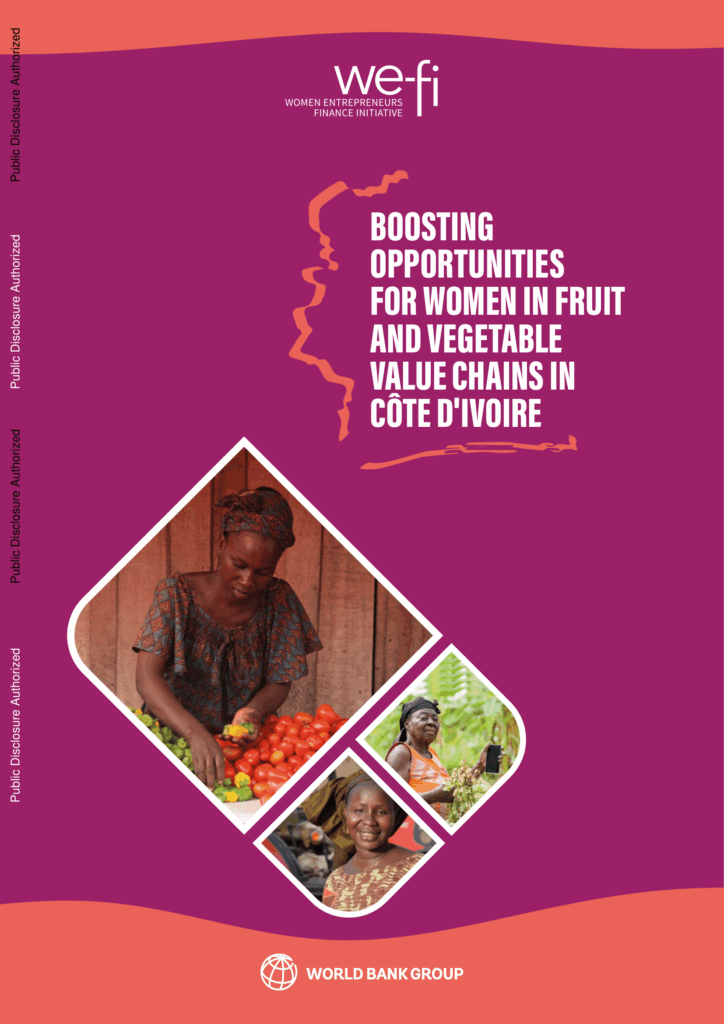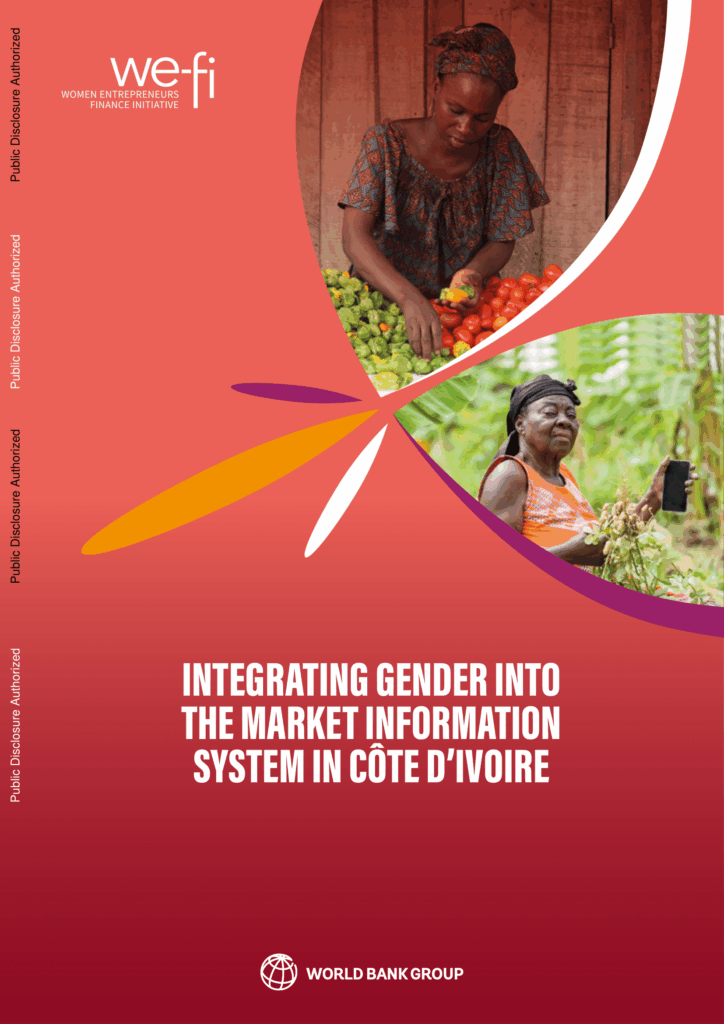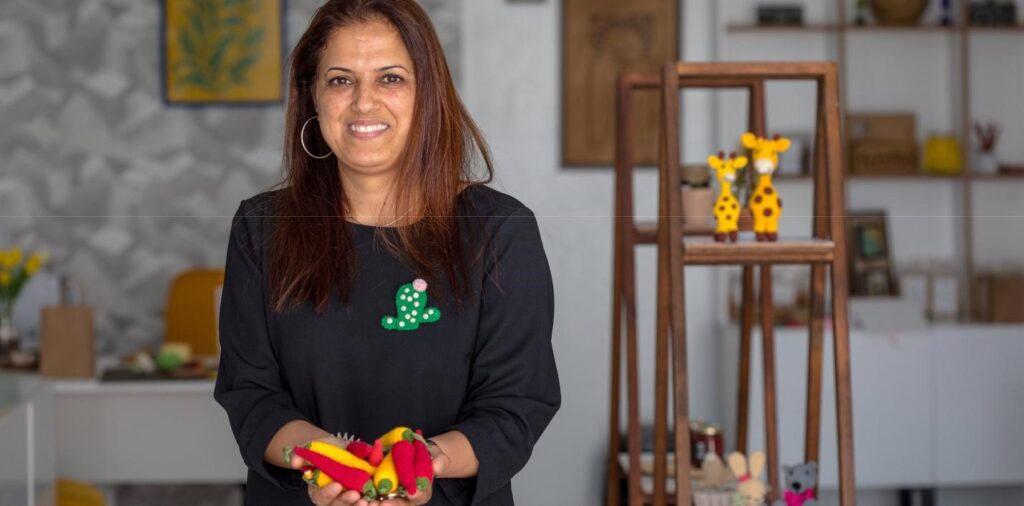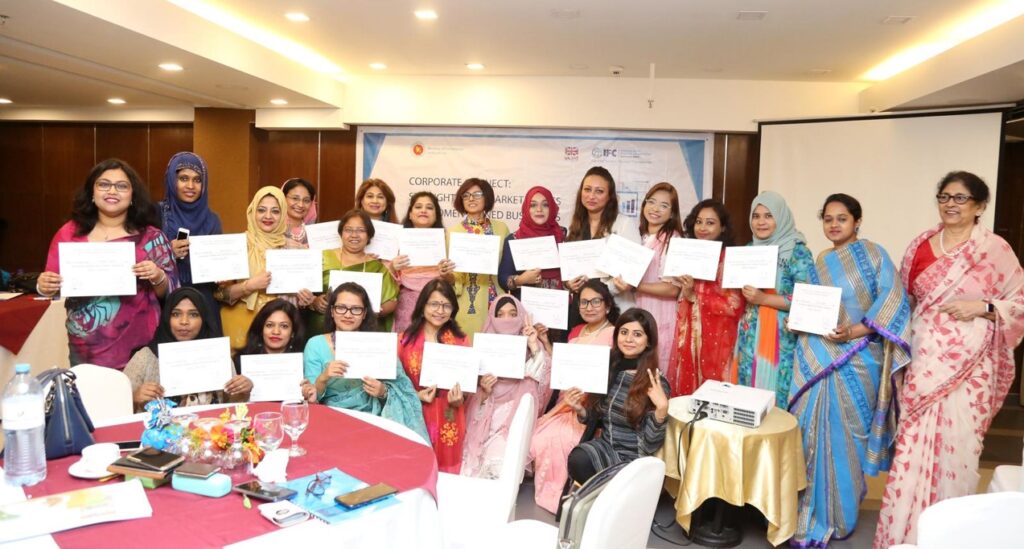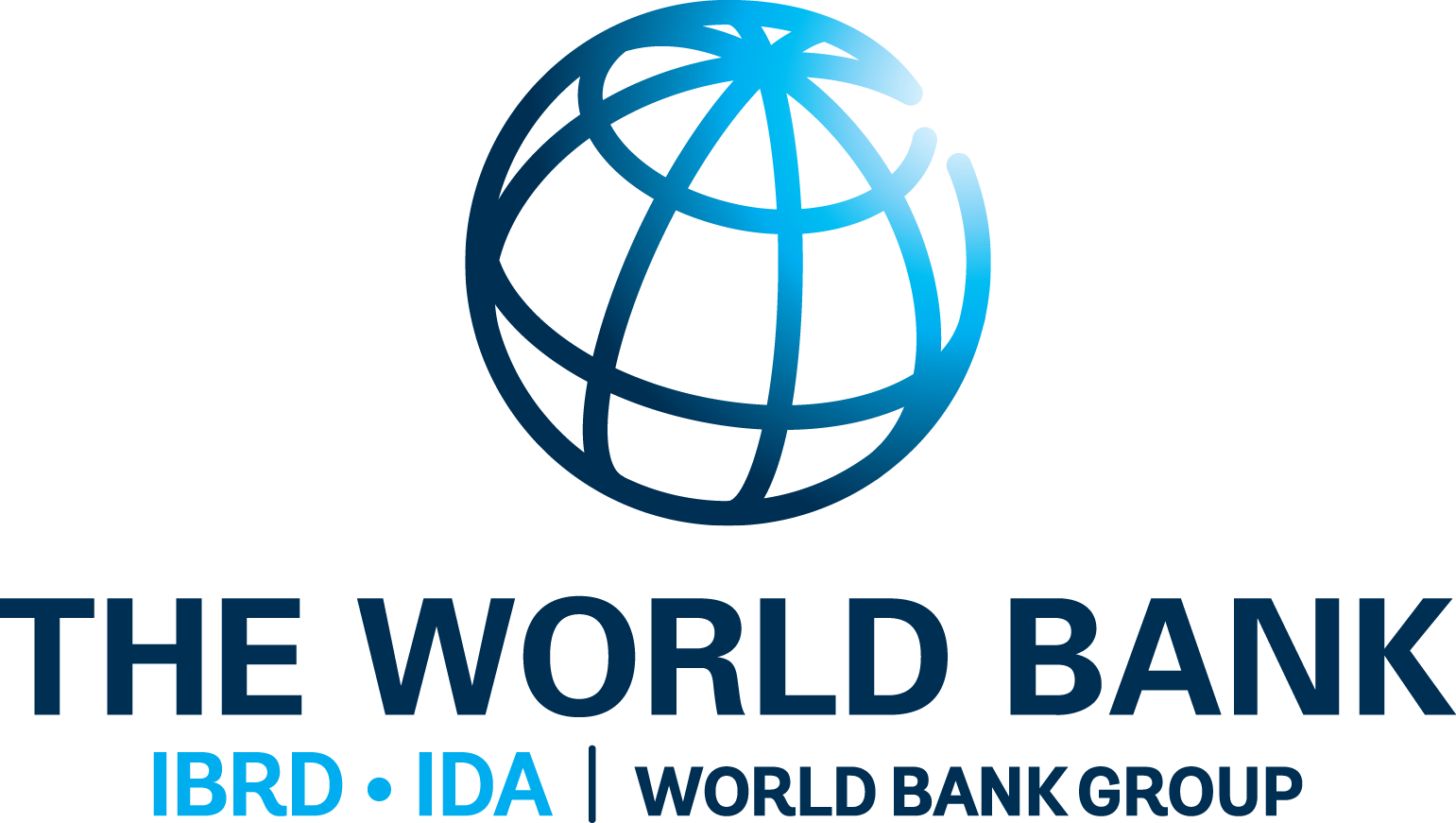
FUNDING
TARGET
Reach 17,274 women entrepreneurs and catalyze $341 million in financing to WSMEs
TIMELINE
Round I: 2018 to 2030
Round III: 2020 to 2025
Round IV: 2022 to 2029
37 COUNTRIES
Algeria, Bangladesh, Burkina Faso, Cambodia, Côte d’Ivoire, Djibouti, Egypt, Ghana, Indonesia, Iraq, Jordan, Kenya, Kosovo, Lebanon, Mali, Mauritania, Morocco, Mozambique, Myanmar, Nigeria, Pakistan, Senegal, Sierra Leone, South Africa, Sri Lanka, Tunisia, and Zambia.
The World Bank Women Entrepreneurs Finance Initiative (WB We-Fi) program, as part of the $75 mil. World Bank Group We-Fi program implemented jointly with IFC, leverages public and private sector initiatives to enable women entrepreneurs to start and grow their businesses. The program relies on country-specific advisory and technical assistance programs, as well as regional initiatives and global activities to undertake data collection, impact evaluations, learning, policy dialogue, and advocacy. These efforts span the three joint World Bank Group pillars and seek to ensure synergies with IFC private sector engagements and the WBG lending portfolio.
Download World Bank We-Fi Project Briefs
Round I: Creating Finance and Markets for All
This program supports women entrepreneurs in accessing finance and expanding into new markets. It promotes gender-inclusive regulatory reforms, along with research, advocacy, and peer-learning efforts. The We-Fi activities are centered on multi-dimensional country projects and are complemented by global activities. The core program components are:
1. Increasing WSMEs’ access to finance by working with financial institutions to develop new products, building WSMEs’ business capacity, and improving investment readiness for high growth start-ups. Key programs – digital cash flow product in Nigeria, We-Raise program in Pakistan.
2. Expanding women entrepreneurs’ access to domestic and international markets by connecting women entrepreneurs and corporate buyers, promoting the adoption of inclusive business practices, and improving WSMEs’ access to public procurement. Key programs – Bangladesh Corporate Connect Program, Traders’ platform in Côte d’Ivoire, Senegal Public Procurement Program.
3. Strengthening entrepreneurial ecosystems for WSMEs by fostering an inclusive regulatory framework, strengthening the financial infrastructure, and encouraging sex-disaggregated data collection. Key programs – Women Business and the Law advisory, Online movable collateral registry in Mozambique, Global WeData program.
Round III: Enhancing Seed Capital, Technology, and Value Chain Solutions for WSMEs
Leveraging Disruptive Technologies and Digital Financial Inclusion for Women-led SMEs
This program supports women entrepreneurs in the shea value chains in the Sahel region in expanding market linkages, and meeting the standards of value chain actors, including buyers and suppliers, for volume, quantity, and product quality. The program also helps WSMEs increase their sales by digitizing payment systems and product handling, and works with fintechs and financial institutions to lend to women entrepreneurs to help them expand their operations in the Sahel and globally. Key components include:
1. Fostering market linkages by training women’s shea butter cooperatives in financial and business management, local and international trade standards, along with negotiation skills for buyer-supplier agreements.
2. Digitalizing supply chain processes to enhance traceability, transparency, and accountability in product handling and cash management.
3. Increasing access to financial services for WSMEs in partnership with fintechs and financial intermediaries. The program will support sex-disaggregated data collection to help better track WSMEs activities and will use blended finance, including performance incentives, to help them expand financial solutions to WSMEs.
Catalyzing Early-Stage Finance for Women Entrepreneurs
This program focuses on expanding early-stage finance for high-growth women’s entrepreneurs in Iraq and Jordan. Activities include:
1. Building entrepreneurs’ capacity through mentorship, networking, fine-tuning business skills, and personal initiative coaching.
2. Developing a pipeline of investible WSMEs through investment readiness programs in partnerships with local accelerators.
Round IV: Leveraging Finance and Data for WSMEs
This program advances systemic changes to strengthen financial infrastructure, set international benchmarks, and support financial authorities’ capacity to collect and use sexdisaggregated data. The program also deploys digital and financial solutions to increase onlending to WSMEs. The focus areas include:
1. Promoting collection of sex-disaggregated data for financial inclusion by supporting Central Banks and regulators to integrate sex-disaggregated data into their frameworks and improve existing data collection processes. The program also supports credit reporting systems in developing and incorporating solutions to reliably identify and monitor WSME lending activity.
2. Expanding finance for WSMEs by supporting financial sector authorities and development banks to extend finance solutions to new WSME segments. This includes activities to identify local constraints faced by WSMEs and support in developing digital financial products and services tailored to WSME’s needs. This is complemented by blended finance instruments and performance-based incentives to encourage financial institutions to expand lending to WSMEs.
Round V: WE Finance Code Pilots: Madagascar, Mozambique, Rwanda, Somalia, South Sudan
This proposal aims to implement the WE Finance Code and catalyze new financial and non-financial mechanisms to meet the needs of WSMEs in five African countries, including two facing fragility, conflict, and violence (FCV). The project has three components:
1. Improving the collection, analysis and use of supply-side, sex-disaggregated data on the level and quality of funding to women entrepreneurs.
2. Supporting the development of new financial products and technical assistance to increase access to financing for women entrepreneurs.
3. Promoting the implementation of the Code through convening events, exchanges, and coalition-building with the Central Banks and local financial sectors.
HIGHLIGHTED PROJECTS
RECENT UPDATES
Program Contact
Sonia Plaza (splaza@worldbank.org)
